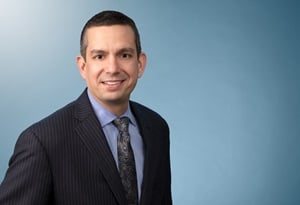Pharmaceutical Industry Targeted Again in Case Alleging Misclassification of Sales Representatives
Two Novo Nordisk pharmaceutical sales representatives—one current and one former—have filed a lawsuit in the Southern District of New York, alleging Novo Nordisk failed to pay them overtime under the Fair Labor Standards Act (FLSA) and violated New York labor law by misclassifying sales representatives as exempt salaried employees. In the case, Stepe v. Novo Nordisk Inc., the plaintiffs seek to certify both a federal FLSA collective action and a state law class action, claiming that Novo Nordisk is liable for more than $70 million in overtime pay, damages and penalties. The named plaintiffs are seeking to represent every individual who worked as a full-time sales representative in a U.S. state, commonwealth or territory during the three-year period before the lawsuit was filed on March 5, 2012, a number which totals approximately 2,000 individuals.
For decades, the pharmaceutical industry has classified its sales representatives, who cannot legally sell drugs, as exempt under the FLSA. However, in recent years such sales representatives have brought several lawsuits across the country challenging whether they are entitled to overtime under the FLSA. In In re Novartis Wage & Hour Litigation, the Second Circuit Court of Appeals held that the Novartis sales representatives were not exempt under the FLSA's outside sales or administrative exemptions. Shortly after the Second Circuit's decision, the Ninth Circuit Court of Appeals reached the opposite conclusion with respect to the outside sales exemption in Christopher v. SmithKline Beecham Corp., finding that pharmaceutical sales representatives are exempt as outside sales employees (the Ninth Circuit did not consider the administrative exemption). In reaching its decision in Christopher, the Ninth Circuit refused to defer to the United States Secretary of Labor's interpretation of the FLSA's outside sales exemption, which the Second Circuit had given deference to.
Although it refused to consider an appeal of the Novartis case last year, the U.S. Supreme Court subsequently granted certiorari in the Christopher case, agreeing to address the following issues: (1) whether deference is owed to the Secretary of Labor's interpretation of the outside sales exemption and related regulations; and (2) whether the FLSA's outside sales exemption applies to pharmaceutical sales representatives. The U.S. Supreme Court will hear oral argument on the Christopher case on April 16, 2012; a decision is expected later this year.
For earlier discussions of the Novartis and Christopher cases, and other cases addressing the exempt status of pharmaceutical sales representatives, please see the February 2011, April 2011 and November 2011 articles in this series.


